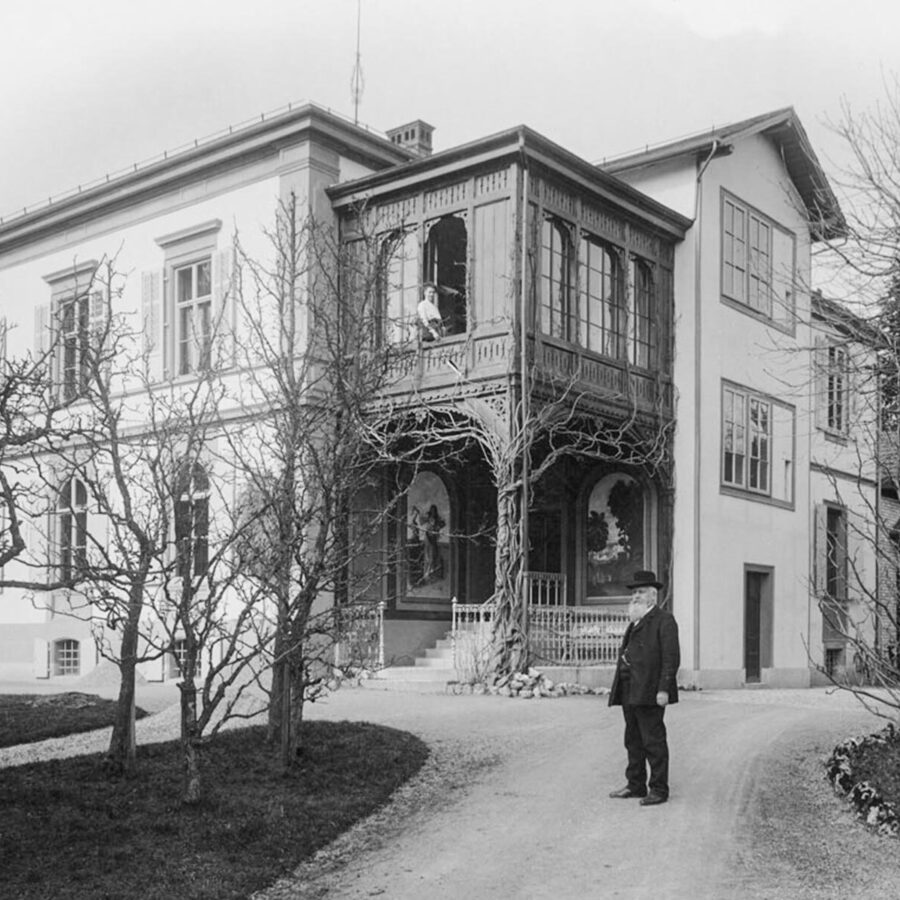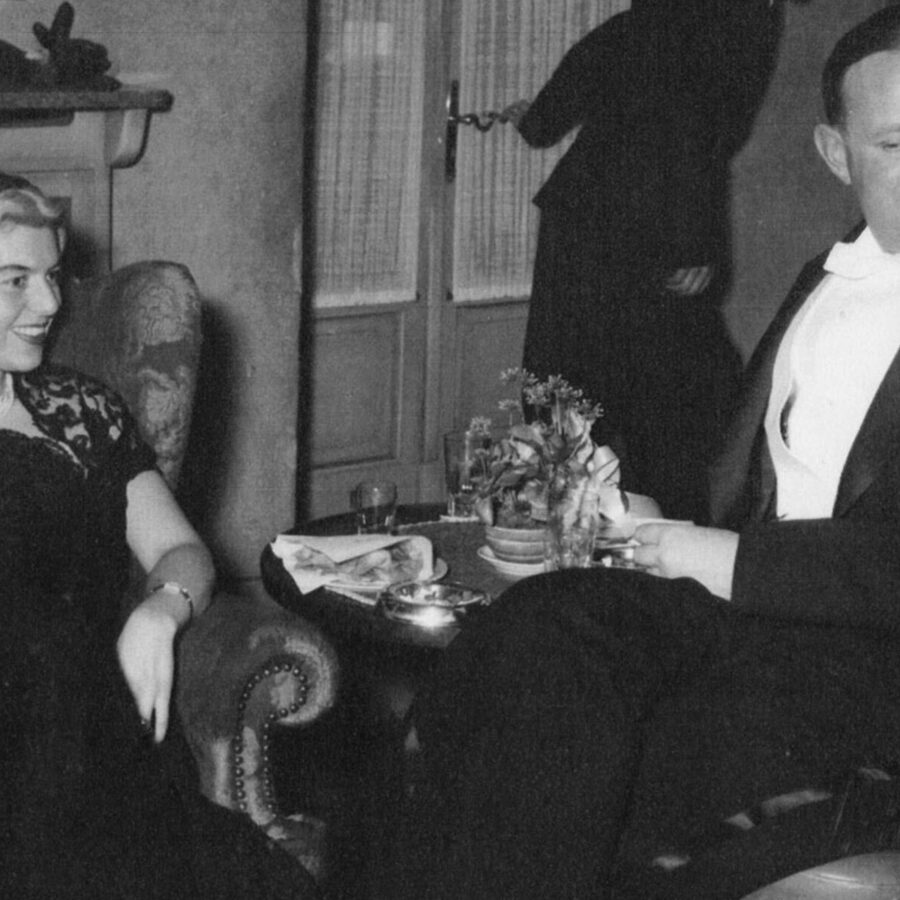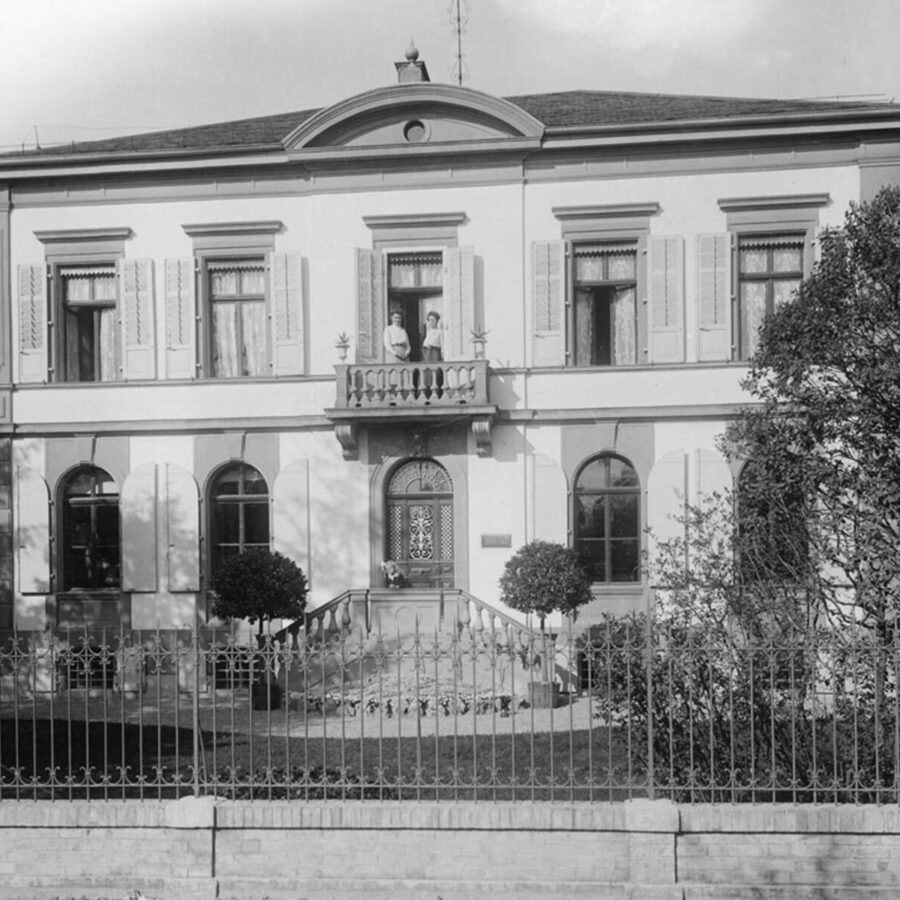Samuel Gottlieb Stettler and his wife Elisabeth (née Galli) had seven children together. The youngest daughter, Emma, who was born in 1885, married Walter Glur, the local doctor in Roggwil. Glur passed away in 1922, the same year in which his daughter Rose-Marie was born. When Rose-Marie was 13 her mother died, too, and she was handed over to the care of her aunt Emma. Her mother’s sister still lived in the “Stettler mansion”, so Rose-Marie moved back into the house in Langenthal where her mother had been born.
Miss Glur, as Rose-Marie was known for the rest of her life, continued living in the mansion house until just a few years before she died, sharing the house for much of that time with her housekeeper Pauline. Rose-Marie Glur always insisted on being addressed as “Miss”. An educated and cultured person, she was an animal and music lover, a skilled violinist, and an enthusiastic traveller. With her blonde hair pinned up and braided, this tall lady was well-known in the town, as was her love of open-top sports cars. In her latter years she developed a passion for buying and selling securities and could spend hours talking about the subject, as her cousin Fritz Stettler recalled.
By 2004 Miss Glur’s health had deteriorated to the point where she had to move to a care home on Lake Zurich. She died there in 2008. She left the lion’s share of her fortune to a charitable foundation set up to support people in need.
This foundation invited the Oberaargau Solidarity Association to present a workplace integration project for people with mental health issues. The project met with the foundation’s approval and it agreed to transfer ownership of the mansion to the Association, allowing it to be converted into a hotel and restaurant.
The renovation work was carried out with great sensitivity in 2010 and 2011 in collaboration with the cantonal office for the conservation of historical monuments. The seminar hotel and restaurant was finally opened in February 2011, providing a springboard and a supportive environment for people with mental health issues to enter the world of work.
The workplace integration programme was consolidated in Hotel Auberge in 2013 thanks to a collective wage agreement with the disability insurance scheme, and it was given professional status thanks to a cooperation agreement with the mental health services department of the Oberaargau regional hospital SRO.


